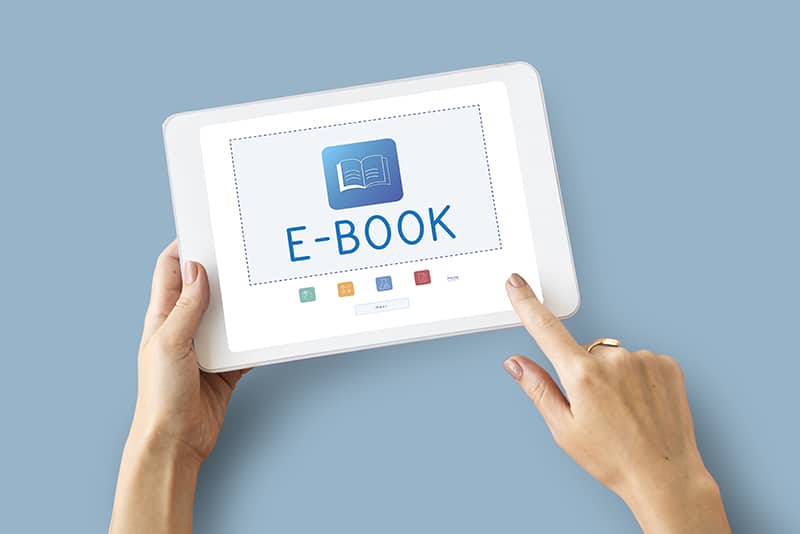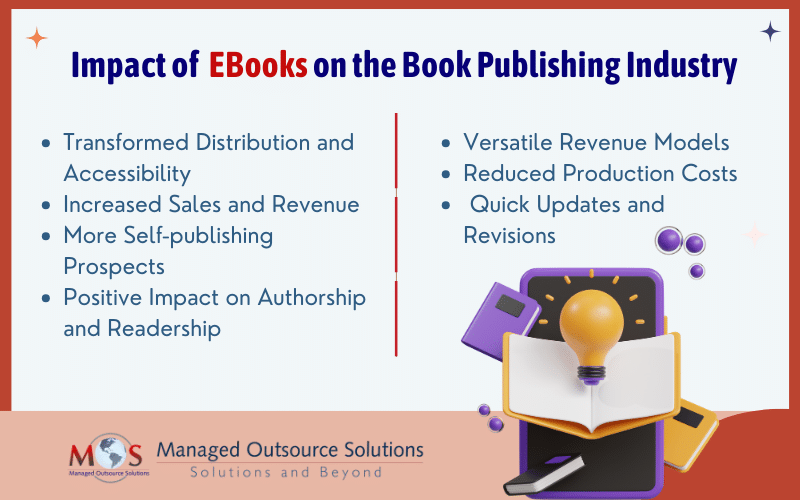In recent years, the publishing industry has undergone a profound transformation with the advent of digital technology, particularly the rise of eBook conversion. This technological shift has revolutionized the way books are produced, distributed, and consumed, reshaping traditional publishing practices and opening up new opportunities and challenges for authors, publishers, and readers alike. Ebook conversion services have not only expanded the global reach and accessibility of books but also transformed production processes, introduced innovative revenue models, and enhanced the reading experience through interactive features and customization options. However, this digital evolution has also raised concerns about piracy, digital rights management, and the changing dynamics of consumer behavior.
Benefits of Ebooks
Convenience
The ease of use that electronic books offer surpasses that of traditional books, making it one of their biggest advantages. E-books are perfect for busy readers because they allow them to download and read books without ever leaving their homes or offices. Because of their ease of use, e-books are becoming more and more popular among readers who are too busy to visit a library or physical bookstore.
Affordability
For readers on a tight budget, e-books are a great option because they are usually far less expensive than traditional books. Book publishers are able to pass on the savings to customers because e-books are typically less expensive to produce and distribute than physical books. Furthermore, readers can purchase ebooks from a range of online retailers, providing them with the flexibility to compare prices and find the best deal.
Accessibility
Anyone with an electronic device and an internet connection can access e-books. Since they can be read with assistive technology, e-books are now widely used by readers with disabilities. In addition, readers can select the e-book format that best fits their needs from a variety of options, including PDF, EPUB, and MOBI.
Customization
Readers of e-books can tailor the reading experience to meet their own needs. Readers can customize the font size, typeface, and background color of e-books to their liking. Moreover, e-book readers make it simple to go over and study the content by highlighting important passages, conducting keyword searches, and adding notes.
Portability
Travel-loving readers will find e-books ideal because of their portability. Readers can store hundreds of books on a single device because e-books don’t require any physical space, unlike traditional books. Readers can also enjoy their favorite books on-the-go thanks to the ability to read e-books on any device with an e-reader app, like a tablet or smartphone.
Environment-friendly
Since e-books don’t require paper, ink, or other resources for printing, they are environment-friendly. They also don’t produce waste or pollution.
In terms of environmental impact, e-books are thus far superior to traditional books.
Reader Engagement
Readers can interact with e-books through features like multimedia content, annotations, and hyperlinks. Because of this possibility for interaction, e-books are becoming more and more common among readers who need more background or information, such as researchers and students. Moreover, interactive components like games and quizzes can be included in e-books, which makes them a great option for keeping readers interested.
The Impact of EBooks on the Book Publishing Industry
Transformed Distribution and Accessibility
Ebook conversion has drastically changed accessibility and distribution, providing publishers and readers with never-before-seen benefits in the digital age. The worldwide distribution possibility that eBooks offer is among their most noteworthy advantages. Ebooks are easily distributed worldwide, unlike traditional printed books, which need substantial physical distribution networks. With no need to worry about the expenses and logistical difficulties of international shipping and distribution, publishers can now connect with readers worldwide and reach a wider audience. Additionally, the instant delivery feature of eBooks has completely changed how customers purchase and read. Nowadays, eBooks can be purchased and downloaded instantly from online platforms, saving readers money by removing the need to wait for shipping. In addition to raising customer satisfaction, this immediacy has simplified and lowered the cost of publishers’ distribution processes.
Increased Sales and Revenue
Book sales and revenue have been significantly impacted by e-books. Booksellers’ reach and income have increased thanks to e-books, which allow them to sell books in places where traditional print books might not be available. E-books have also simplified the process for book publishers to monetize their works.
More Self-publishing Prospects
Authors can now self-publish their books more easily thanks to e-books. Without the assistance of a traditional publisher, authors can publish and distribute their e-books. It has expanded the number of self-published books that are available, giving readers a greater selection.
Positive Impact on Authorship and Readership
The ability of new authors to publish their books and reach a larger audience through e-books has had an impact on readership and authorship. E-books have also given readers access to a wider selection of books, including ones that might not be found in their neighborhood library or bookstore.
Versatile Revenue Models
- Flexible Pricing
- Subscription Services
Ebooks’ digital format has made it possible for publishers to use a variety of flexible pricing strategies, such as bundled offers, discounted pricing, and dynamic pricing that change in response to reader demand, market trends, and reader behavior. Publishers now have more control over their pricing strategies and can maximize revenue and profitability thanks to this pricing flexibility.
With the advent of eBook subscription services like Kindle Unlimited and Scribd, publishers now have a new source of income, and readers can now access a vast library of books at no cost for a monthly or yearly membership. This subscription-based business model has improved reader loyalty and engagement while providing publishers with a steady stream of recurring income.
Reduced Production Costs
Publishers’ production costs have been greatly lowered by eBooks because they do not require printing, binding, or physical distribution. As a result of their affordability, publishers have been able to test out different pricing schemes, give deals, and fund high-caliber advertising campaigns.
Quick Updates and Revisions
With eBooks, content can be quickly updated, revised, and corrected and then instantly distributed to readers. Given this dynamic updating capability, publishers can now maintain the relevance and accuracy of their content over time without having to invest in expensive reprints.
Challenges and Concerns
Although there are many advantages to eBook conversion, the publishing industry also faces difficulties and concerns, such as:
- Piracy
The ease with which digital files can be shared has raised concerns about eBook piracy and illegal distribution, which could jeopardize publishers’ and authors’ profits and intellectual property rights.
- Digital Rights Management (DRM)
In order to prevent content piracy and maintain user convenience and accessibility, publishers must employ efficient Digital Rights Management (DRM) systems.
- Format Compatibility
Various eBook formats (such as EPUB and MOBI) may be needed for different devices and platforms. This can make it difficult to maintain consistency and compatibility across devices, which can negatively affect the reading experience and user satisfaction.
The publishing industry has seen a significant transformation thanks to document conversion services, which have also revolutionized the production, distribution, and consumption of books in the digital age. It has improved the reading experience with interactive features and customization options, lowered production costs, increased the global reach and accessibility of books, and introduced novel revenue models. The environmental sustainability of eBooks has also been emphasized as an eco-friendly substitute for printed books. Entrepreneurs will be crucial in determining the direction of the book industry as it develops, spurring innovation and expanding the realm of what is conceivable.
Optimize Your Revenue and Adapt to Digital Trends with Our Innovative eBook Conversion Services!





